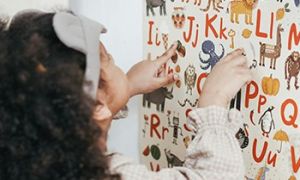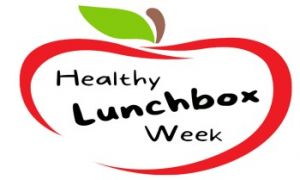

Incorporating STEAM displays within early learning environments offers children rich, open-ended opportunities for discovery, creativity, and problem-solving. From light tables with translucent materials to interactive coding corners and nature-based science trays, each provocation is designed to ignite curiosity and encourage independent exploration. The following provides a list of STEAM Displays and Learning Provocations For Children To Explore Independently.
Celebrating NAIDOC Week with babies aged 0–12 months is a beautiful opportunity to introduce them to the richness of Aboriginal and Torres Strait Islander cultures through sensory, visual, and rhythmic experiences. Here are some gentle, age-appropriate ideas tailored for your littlest learners.
Math resources and manipulatives are powerful tools that bring abstract concepts to life for young learners. When incorporated thoughtfully into play-based environments, math manipulatives not only support EYLF outcomes but also nurture confidence, curiosity, and a lifelong love of learning. The following lists 10 Math Resources and Manipulatives for Children.
Here’s a thoughtfully curated list of 20 autism-friendly activities that align beautifully with inclusive early childhood practices. These ideas support sensory regulation, communication, emotional development, and agency—while being playful and engaging for all children.
Helping toddlers and preschoolers build emotional vocabulary is like giving them a toolbox for life—they learn to name what they feel, which helps them express themselves, regulate emotions, and connect with others. Here are some engaging, developmentally appropriate strategies and games to teach emotional vocabulary.
A “feelings toolbox” is a collection of strategies, visuals, and resources that help children recognize, express, and regulate their emotions. The following article provides information on What Is A Feeling Toolbox?, Benefits Of A Feeling Toolbox, Feeling Toolbox Tools For Different Age Groups, Effectively Implementing A Feeling Toolbox, Examples For Using The Feelings Toolbox in Real-Life Scenarios and more.
Language and literacy experiences for preschoolers aged 3 to 5 are all about sparking curiosity, building confidence, and laying the foundation for lifelong communication. Here’s a mix of engaging, developmentally appropriate ideas you can weave into your program.
The following provides a playful mix of language and literacy experiences perfect for toddlers (around 2–3 years), designed to build vocabulary, listening, and early communication skills through everyday fun.
Here are 20 engaging activities designed to boost problem-solving skills in preschoolers. Each activity offers a playful and hands-on way to stimulate critical thinking, spatial awareness, and decision-making while keeping learning fun.
Yoga games offer a treasure trove of benefits for kids—blending movement, mindfulness, and play in ways that support both body and mind. The following provides 20 Yoga Games For Preschoolers.
 As an Educator in Australia, your pay rate falls under the Children’s Services Award 2010. This award states the minimum amount that an employer can… Read More
As an Educator in Australia, your pay rate falls under the Children’s Services Award 2010. This award states the minimum amount that an employer can… Read More
 When working as a qualified Early Childhood Teacher (with a university degree) within a service, your rate of pay will come from the Educational Services… Read More
When working as a qualified Early Childhood Teacher (with a university degree) within a service, your rate of pay will come from the Educational Services… Read More
 When working as a Diploma Qualified Educator your pay rate is from the Children's Services Award 2010. This Award states your minimum rate of pay… Read More
When working as a Diploma Qualified Educator your pay rate is from the Children's Services Award 2010. This Award states your minimum rate of pay… Read More
 When working as a Cert 3 Qualified Educator, your pay rate is from the Children's Services Award 2010. This Award states your minimum rate of… Read More
When working as a Cert 3 Qualified Educator, your pay rate is from the Children's Services Award 2010. This Award states your minimum rate of… Read More
 Educational Leaders play a crucial role in their early childhood service by ensuring that the educational program aligns with best practices and supports the holistic… Read More
Educational Leaders play a crucial role in their early childhood service by ensuring that the educational program aligns with best practices and supports the holistic… Read More
 With the new national child safety reforms kicking in on 1 September 2025, early childhood services like yours have a real opportunity to lead the… Read More
With the new national child safety reforms kicking in on 1 September 2025, early childhood services like yours have a real opportunity to lead the… Read More
 In early childhood education and care, ratios are more than a technicality—they are a frontline safeguard. Every child deserves responsive supervision, emotional connection, and developmental… Read More
In early childhood education and care, ratios are more than a technicality—they are a frontline safeguard. Every child deserves responsive supervision, emotional connection, and developmental… Read More
 Here’s a comprehensive Mobile Phone and Smart Watch Policy tailored for early childhood education and care (ECEC) services in Australia, aligned with the latest 2025… Read More
Here’s a comprehensive Mobile Phone and Smart Watch Policy tailored for early childhood education and care (ECEC) services in Australia, aligned with the latest 2025… Read More
 The Sea of Fish Challenge is a national initiative that invites children, educators, families, and communities to create and display fish artworks as a symbol… Read More
The Sea of Fish Challenge is a national initiative that invites children, educators, families, and communities to create and display fish artworks as a symbol… Read More
 Cold weather play is incredibly beneficial for early childhood development! It helps children build resilience, strengthen their immune systems, and develop essential motor skills. Here’s… Read More
Cold weather play is incredibly beneficial for early childhood development! It helps children build resilience, strengthen their immune systems, and develop essential motor skills. Here’s… Read More

Integrating educational theories into activities ensures a well-rounded approach to early childhood education, addressing various...
See more...
In early childhood education, the decision to defer a child’s school entry by a year...
See more...
National Lunchbox Week takes place from 9th February to 15th February. The following provides Articles, FREE...
See more...© 2009-2025 Aussie Childcare Network Pty Ltd. All Rights Reserved.

